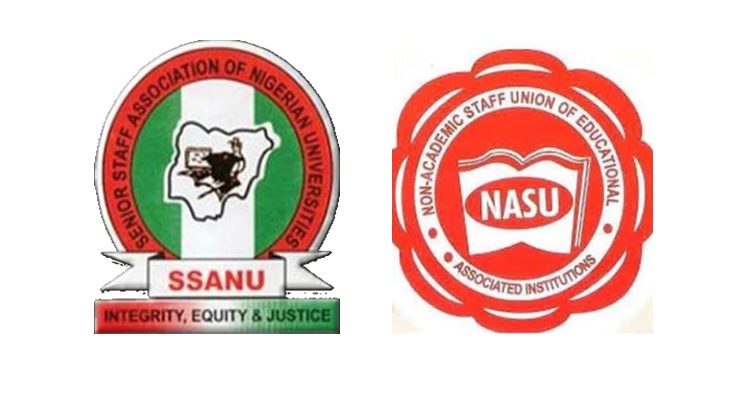The Joint Action Committee of the Senior Staff Association of Nigerian Universities (SSANU) and the Non-Academic Staff Union of Universities and Allied Institutions (NASU) has criticized the Federal Government’s recent inauguration of the renegotiation committee for university-based unions. The unions expressed dissatisfaction with the process, labeling it a “charade” and claiming it was biased towards the Academic Staff Union of Universities (ASUU).
In a statement signed by SSANU President Muhammed Ibrahim and NASU President Peters Adeyemi, the unions alleged that the government primarily focused on ASUU, neglecting the concerns of other university unions. They described their experience during the inauguration as humiliating, stating that the President of ASUU was given preferential treatment, while SSANU and NASU representatives were sidelined.
The Federal Government, through the Minister of Education, Tahir Mamman, had announced the reconstitution of the committee to renegotiate the 2009 agreements between the government and university unions. The committee, led by Yayale Ahmed, was given a three-month timeline to complete the process. However, this is the fourth renegotiation committee since 2017, following previous efforts by Wale Babalakin, Munzali Jubril, and Nimi Briggs.
SSANU and NASU expressed concerns that the renegotiation process would be skewed in favor of academic staff, warning that the imbalance in representation could result in unfair treatment for non-teaching staff.
Meanwhile, the Congress of University Academics (CONUA), another academic union, also demanded representation in the renegotiation process. In a letter to the Minister of Education, CONUA’s National President, Dr. Niyi Sunmonu, criticized the exclusion of the union from the committee, arguing that it jeopardized the interests of its members.
Both SSANU and NASU, along with CONUA, are now calling for fair and inclusive representation in the renegotiation process to ensure that the voices of all stakeholders within the university system are heard.

